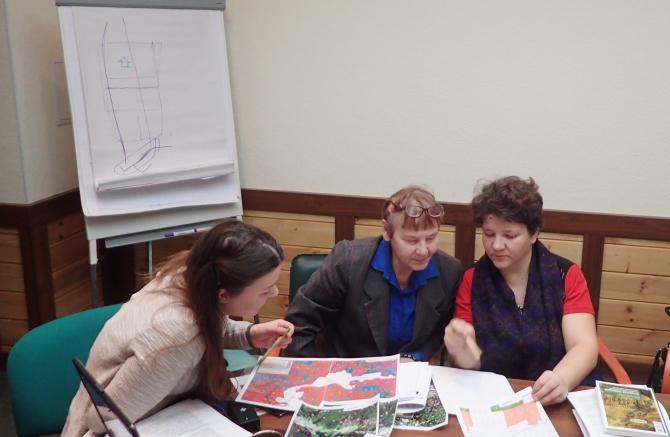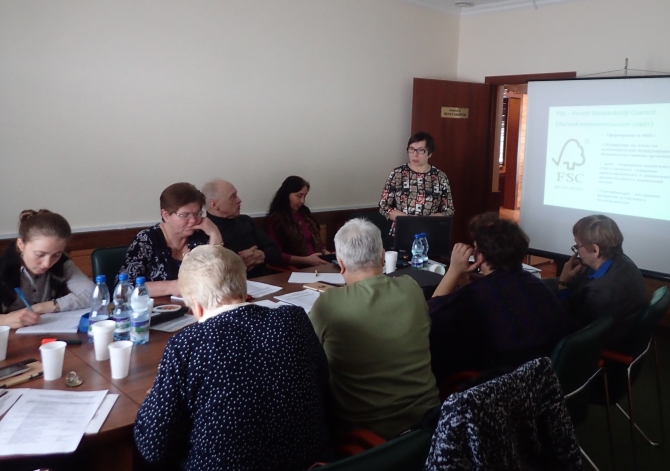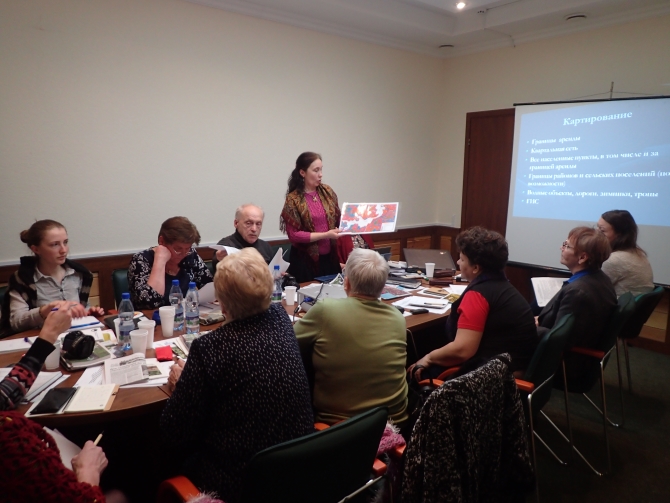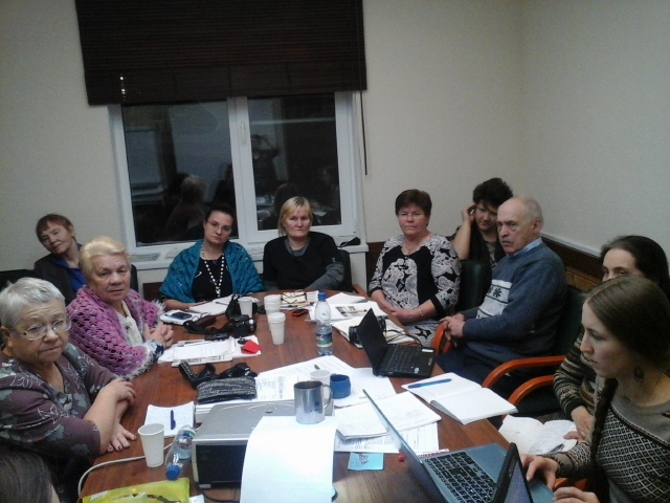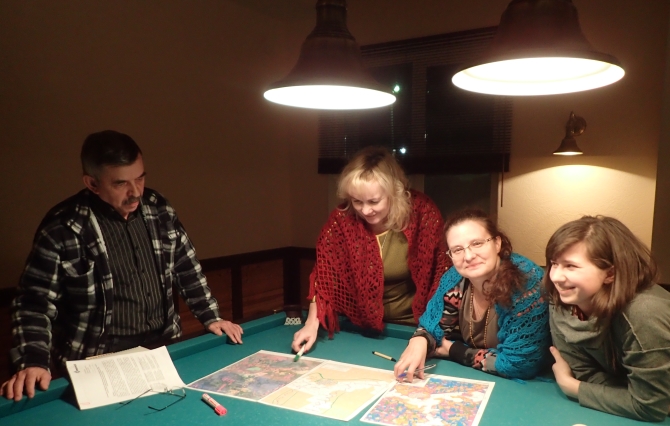Forest Area Residents Discussed FSC Certification Issues
The first round table meeting under the cooperation between the Silver Taiga Foundation and World Wildlife Fund targeted to public involvement into environmental management and control of natural resources has been held this year. The event was attended by community representatives and NGOs of Komi and Arkhangelsk regions and arranged at the Finno-Ugric Ethnic Park in Yb village.
The topic selected for reporting and discussion – FSC certification as a mechanism of involving local community and public organizations into forest management – was acute. Actually, it is very important that local residents participate in the process of forest landscape management, in particular, in control of such assets as forest and water resources, to ensure sustainable management of the area and resources. Unfortunately, in real life forestry business’ interests often differ from the ones of the locals, because it is important for the latter ones to preserve forests for own sustenance. No wonder that local communities that are dependent on forest often clash with companies. In each case, it takes much efforts and time for the people and the company to resolve the conflict. In order to avoid the conflict, it is important to involve the locals into the forest management process, cooperate with them at the planning stage, and regularly inform them. FSC certification is one of the tools for the residents to be involved in such processes, however rural inhabitants know too little about the opportunities the tool provides.
Meanwhile, the requirements of the new FSC standard under development related to engagement of the local population have toughened. So, both certificate holders and the local residents have to be prepared for it.
The three-day round table meeting attended by representatives of communities from Kortkeros, Priluzye, Syktyvdin, Udora and Ust-Kulom districts of the Komi Republic, as well as from Onega and Ustyany districts of Arkhangelsk region, Arkhangelsk and Syktyvkar (18 people in total) was actually devoted to the social aspects of the FSC certification.
The participants were activists of the Komi Voytyr Public Movement, Indigenous Komi Women Regional Movement, Udorachi indigenous community, representatives of public Forest Councils operating in some Komi districts, and Arkhangelsk region NGOs. Almost all of them are villagers, and somehow face the challenges related to forest management either in their daily routine, or in social activity. Nevertheless, some of the participants were not informed sufficiently about the objectives and details of the certification and the possibility for the public to participate in the process. That is why Antonina Kulyasova and Valentina Semyashkina, facilitators of the meeting, focused much on additional information and explanations, and then the participants could discuss the topic openly and efficiently.
Experienced activists – member of the Forest Council from Priluzye district Konstantin Serditov and chairman of the Udorachi indigenous community Albert Loginov – were most active. In addition to information and forest business interaction experience exchange the participants reviewed cases offered by the facilitators. In small groups they worked with maps to justify allocation of forest areas considered as social HCVF for conservation, they suggested solutions to settle the conflict with regard to preservation of the IFL in area between the Northern Dvina and Pinega rivers, etc.
A part of the round table meeting was dedicated to the dialogue with Marina Koroleva, leading engineer of Certification and Environment, Forest Management, Mondi Syktyvkar. It was an honest and substantial conversation with the representative of the company operating almost in all forested districts of Komi that was useful for both parties.
To conclude, the round table participants exchanged their impressions and suggestions to hold such meetings in the future. Almost all of them stated the meetings are necessary and asked to find a possibility to arrange such events locally in districts and villages. They specially noted that it is important to engage municipal deputies and heads of village administrations, hunters and other local forest users, as well as youth, to participate in such meetings.
Photos by Anna Shuktomova and Valentina Semyashkina

